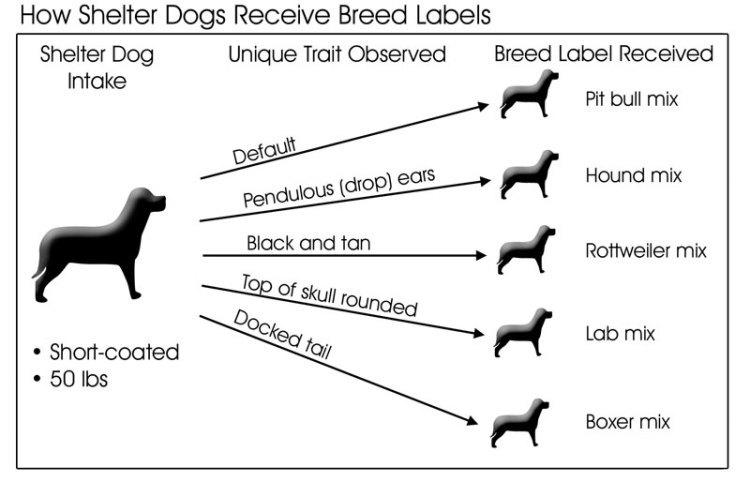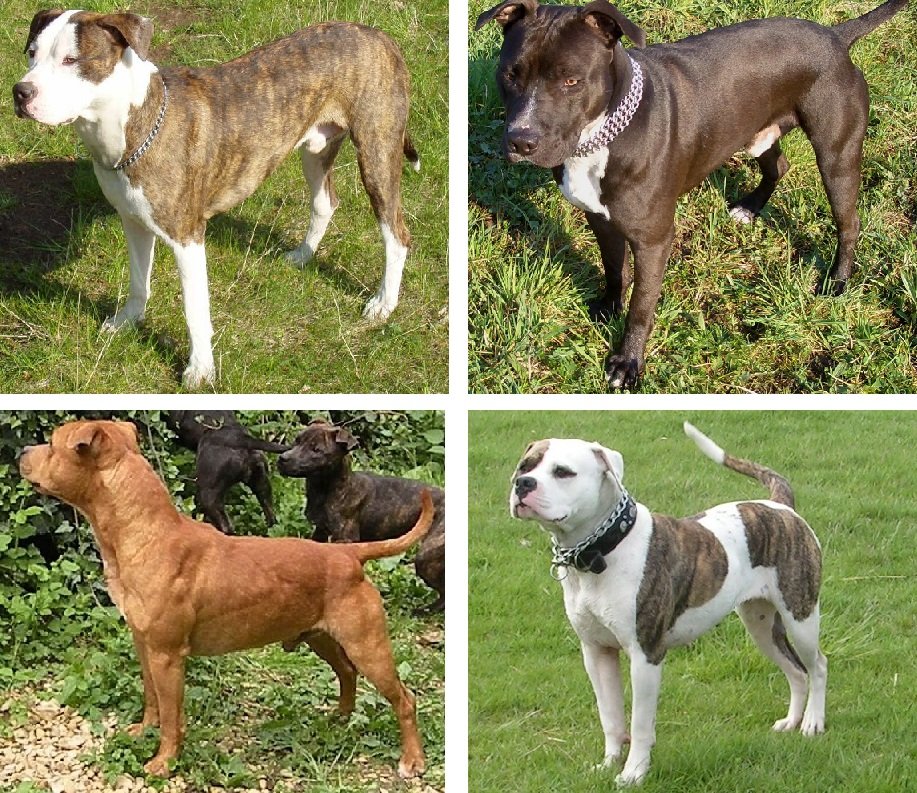Did you know that pitbulls were originally bred for bull-baiting and other blood sports? Their muscular bodies and tenacity made them perfect for these brutal activities. It’s hard to believe that these dogs, known for their loving and loyal nature, have such a violent past. But what does pitbull really mean today?
The term “pitbull” is actually used to describe several different dog breeds including the American Pit Bull Terrier and the Staffordshire Bull Terrier. Despite their reputation, pitbulls are not inherently aggressive or dangerous. In fact, they can be loving, gentle companions when properly trained and socialized. Unfortunately, due to their history and media portrayal, they often face breed-specific legislation and discrimination. Many advocates argue that responsible ownership, education, and positive reinforcement training are the key to changing the perception of what pitbulls really mean.

What Does Pitbull Mean?
The term “pitbull” is often associated with a specific breed of dog, but it also has broader meanings and connotations. In this article, we explore the origins of the term, different interpretations, and the role of pitbulls in popular culture. Whether you’re a dog lover or simply curious about language and its evolutions, you’ll find this article informative and engaging.
The Origins of the Term “Pitbull”
One of the most common interpretations of the term “pitbull” refers to a specific breed of dog with a controversial reputation. The American Pit Bull Terrier, also known as the APBT, is a medium-sized, muscular breed known for its strength, agility, and loyalty. However, the term “pitbull” can also be used more broadly to describe dogs with similar physical traits, such as the Staffordshire Bull Terrier or the American Staffordshire Terrier.
The term itself originated from pit fighting, a type of bloodsport popular in the 18th and 19th centuries. Dogs were pitted against each other in enclosed pits, usually in battles to the death. The strong and tenacious dogs used in these fights became associated with the term “pitbull.” Over time, the term has evolved to encompass not just the physical characteristics of these breeds, but also their reputation for aggression and danger.
It’s important to note that while some pitbulls may exhibit aggressive behavior, it is not inherent to the breed as a whole. Proper training, socialization, and responsible ownership play a significant role in how a pitbull—or any dog—behaves. Generalizing all pitbulls as aggressive can lead to misconceptions and unfair stigma.
The Controversies Surrounding Pitbulls
Pitbulls have been at the center of numerous controversies, mainly due to misconceptions and negative media portrayals. The breed’s physical characteristics and historical connection to pit fighting have perpetuated the perception that all pitbulls are inherently aggressive and dangerous. This misconception has led to breed-specific legislation in many areas, imposing restrictions or outright bans on owning pitbulls.
However, dedicated advocates for pitbulls argue that the breed is often misunderstood. They emphasize that with proper training, socialization, and responsible ownership, pitbulls can be loving, gentle family pets. In fact, many pitbulls are known for their loyalty and affection towards their human companions.
Furthermore, some organizations actively work towards rehabilitating and rehoming pitbulls, aiming to combat the negative stereotypes associated with the breed. These organizations provide resources and support for responsible pitbull ownership, promoting education and awareness about proper training techniques and debunking the misconceptions about aggression.
The Positive Influence of Pitbulls in Society
Despite the controversies, pitbulls have also made a significant positive impact in society. Many pitbulls are working in various roles, including search and rescue dogs, therapy dogs, and service animals. Their intelligence, athleticism, and strong work ethic make them valuable contributors in these fields.
In addition, pitbulls have become popular subjects in arts and entertainment. They have been featured in movies, television shows, and even as mascots for sports teams. These portrayals have helped shed light on the loving and loyal nature of pitbulls, countering negative stereotypes and promoting a more nuanced understanding of the breed.
Pitbulls also have a considerable presence in social media, with dedicated accounts and hashtags celebrating these dogs’ beauty, resilience, and affectionate personalities. These platforms provide a space for owners and enthusiasts to share stories, dispel myths, and advocate for responsible pitbull ownership.
The Perception of Pitbulls: Changing Attitudes and Stereotypes
Over the years, there has been a gradual shift in public perception regarding pitbulls. More people are recognizing the misconceptions and unfair stigma surrounding the breed and taking steps to challenge these stereotypes.
One of the key factors contributing to changing attitudes is education. Organizations and advocates have been working tirelessly to provide information about responsible ownership, positive training techniques, and the true nature of pitbulls. By sharing success stories and debunking myths, they are helping to reshape the public’s understanding of the breed.
Additionally, legislation surrounding breed-specific bans and restrictions is evolving in many places. Some regions have repealed or amended laws that previously targeted pitbulls, instead focusing on responsible pet ownership and addressing issues related to dog aggression on an individual basis.
Promoting Responsible Pitbull Ownership: Tips and Advice
If you are considering owning a pitbull or already have one as a pet, there are several key factors to keep in mind:
- Socialize your pitbull: Early and ongoing socialization is crucial for pitbulls. Expose them to various environments, people, and other animals to help them become well-rounded and confident.
- Provide consistent training: Positive reinforcement training techniques work best with pitbulls. Consistency, patience, and clear communication are essential for helping them thrive.
- Be responsible: Owning any dog, including a pitbull, comes with responsibilities. Ensure your pet receives proper veterinary care, exercise, mental stimulation, and a loving, safe environment.
The Future of Pitbulls
As perceptions continue to change and more people challenge the stereotypes surrounding pitbulls, the future looks promising for the breed. With greater awareness and responsible ownership, pitbulls can enjoy the loving homes they deserve.
Remember, when we ask, “What does pitbull mean?” it’s important to go beyond the surface-level associations and recognize the complexity and diversity within the term. Pitbulls are more than just a breed of dog—they are living beings with individual personalities and the potential to be incredible companions.
Key Takeaways: What Does Pitbull Mean?
- Pitbull is a popular breed of dog known for its strength and athleticism.
- The term “pitbull” can also refer to a specific type of dog breed, such as the American Pit Bull Terrier or the Staffordshire Bull Terrier.
- Pitbulls are often misunderstood and have gained a reputation for aggression, but with proper training and socialization, they can be loving and friendly companions.
- The name “pitbull” originated from their historical use in pit fighting, but today they are more commonly kept as family pets.
- If you’re considering getting a pitbull, it’s important to research the breed, understand their needs, and provide them with a loving and responsible home.
Frequently Asked Questions
Pitbull is a term commonly associated with a specific breed of dogs. Below, we’ll answer some frequently asked questions about what the term “pitbull” means.
Q1: Are pitbulls a specific breed?
A1: Pitbull is not a specific breed but refers to a type or group of dog breeds. The term is often used to describe dogs that share certain physical characteristics and traits, such as a muscular build, a square-shaped head, and a strong jaw. Common breeds associated with the term “pitbull” include the American Pit Bull Terrier, the American Staffordshire Terrier, and the Staffordshire Bull Terrier.
It’s worth noting that different organizations and kennel clubs may have different standards and criteria for what constitutes a pitbull, so there may be some variation in how the term is defined.
Q2: Where did pitbulls originate?
A2: The ancestors of modern-day pitbulls can be traced back to England. In the 19th century, these dogs were bred for various purposes, including bull-baiting and ratting. When bull-baiting was banned, some breeders shifted their focus to developing a less aggressive breed for other activities, such as dogfighting. Over time, these dogs were brought to the United States, where they gained popularity.
Today, pitbulls are known for their loyalty, intelligence, and athleticism. They can make great companions when properly trained and socialized. However, it’s important to remember that responsible ownership and training are crucial to ensure the well-being of any dog, regardless of breed.
Q3: Why do pitbulls have a reputation for aggression?
A3: Pitbulls have unfortunately gained a reputation for aggression due to media portrayal, misconceptions, and instances of irresponsible ownership. While it’s true that pitbulls, like any other breed, have the potential to display aggression if not properly trained or socialized, it’s important to note that aggression is not inherent to the breed.
The temperament and behavior of a pitbull are influenced by various factors, including genetics, environment, and individual personality. With responsible ownership, positive training methods, and early socialization, pitbulls can grow up to be friendly, well-behaved dogs. It’s essential to judge dogs based on their individual behavior and not make assumptions solely based on their breed.
Q4: Are pitbulls suitable for families and children?
A4: Yes, pitbulls can be suitable for families and children when properly trained, socialized, and given appropriate care. They can be loving, loyal, and protective companions. However, before bringing a pitbull into a family environment, it’s important to consider the specific needs and characteristics of the dog.
Owners should ensure that children are taught how to interact with dogs respectfully and understand the importance of giving the dog space and not engaging in rough play. It’s also vital to supervise interactions between pitbulls and children to prevent any accidental harm and to maintain a safe environment for both the dog and the child.
Q5: Are pitbulls more aggressive than other breeds?
A5: There is no evidence to support the claim that pitbulls are inherently more aggressive than other breeds. Aggression in dogs is a complex behavior influenced by various factors such as genetics, training, socialization, and individual temperament. It’s unfair and misleading to single out pitbulls as being predisposed to aggression.
It’s important to remember that aggression can occur in any breed, and responsible ownership and training play a significant role in fostering a well-behaved and social dog. By providing proper care, training, and socialization, owners can help their pitbulls become friendly and gentle members of society.

VERIFY: Are pit bulls the most dangerous breed of dog?
Summary
In summary, the word “pitbull” refers to a type of dog breed known for their strength and loyalty. They are often misunderstood and perceived as aggressive, but it’s important to note that a dog’s behavior is heavily influenced by how they are raised and trained. Pitbulls can be loving and friendly companions when given proper care and socialization.
While it’s true that some pitbulls have been involved in incidents, it’s crucial to remember that any dog can be dangerous if mistreated or not trained responsibly. It’s unfair to judge an entire breed based on the actions of a few individuals. The key is to approach pitbulls with an open mind, give them a chance, and ensure they receive the love, attention, and training they need to become well-rounded and happy dogs. With the right care, pitbulls can make wonderful pets and bring joy to their families.
